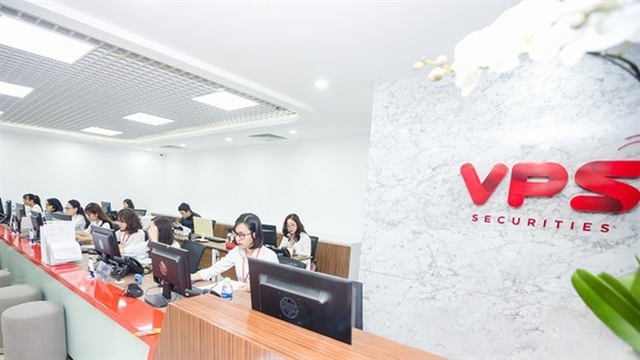Transport SOEs drive through successful IPOs
Transport SOEs drive through successful IPOs
The success of the initial public offerings (IPO) of the State-owned transport enterprises in Q1 is likely to send out positive signals on the long-waited equitisation.

Deputy Prime Minister Vu Van Ninh said that the positive results would remove the hesitant sentiment on the stock market.
From January to March, five out of the nine State corporations under the Ministry of Transport managed to successfully offer shares to the public.
The Transport Engineering Design Inc sold all shares at VND21,848 each, twice the initial price, generating VND56.8 billion, or US$2.7 million, for the State. The Viet Nam Waterway Construction Corporation gained VND91 billion, or $4.3 million; the Civil Engineering Construction Corporation 4 (Cienco 4) got VND226.5 billion, or $10.7 million; Cienco 1 made VND162 billion, or $7.7 million; and the Thang Long Construction Corporation made VND258.5 billion, or $12.2 million.
Four other corporations under the ministry, however, failed to reach the target, including Cienco 5 which sold only 13.4 per cent of the shares, Cienco 6 which sold 4 per cent, the Waterway Construction Corporation which sold 36.3 per cent and Vinamotor which sold 3 per cent of the shares.
The Ministry of Transport is also speeding up the equitisation of units controlled by the Viet Nam National Shipping Lines (Vinalines). The parent company of Vinalines is expected to issue an IPO by Q1 2015.
None of the IPOs issued by the four corporations under the Ministry of Construction succeeded.
Deputy Head of the Steering Committee for Business Renovation and Development Pham Viet Muon said the strategic investor participation did help to make some of the IPOs successful. Those who failed didn't have any strategic investors.
According to economic think-tank Vo Tri Thanh, one of the key things that the State-owned enterprises need to do to attract strategic investors is to improve information transparency and set up a committee for strict supervision of the equitisation process.
Economists suggested that the companies whose IPOs failed should shift to the joint stock model so as to improve administration and supervision, which would help their next IPO.
The Ministry of Finance plans to submit new regulations to boost equitisation and the withdrawal of State capital.
In a draft to amend the Viet Nam Law on Enterprises 2005 on practices of the State-owned enterprises (SOEs), the Ministry of Planning and Investment proposes to regulate periodic and upon-request information disclosure at SOEs. This shows a growing pressure to restructure this driver of the economy.
The Southeast Asian economy plans to get a total of 432 SOEs equitised during the 2014-15 period, or 216 enterprises per year. Viet Nam is well on its way to carrying out a full-scale reform of the bloated state-owned enterprises. Between 1986 and 2013, the number of state-owned enterprises fell from 12,000 to 1,284.
vietnamnews



























